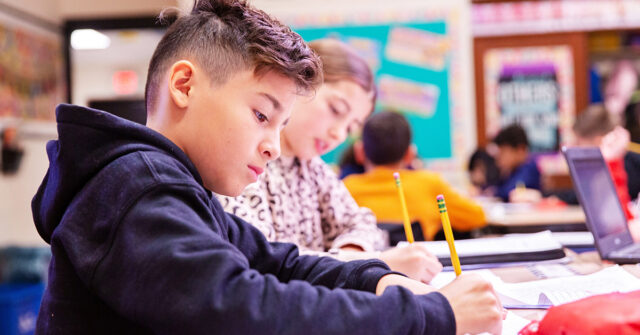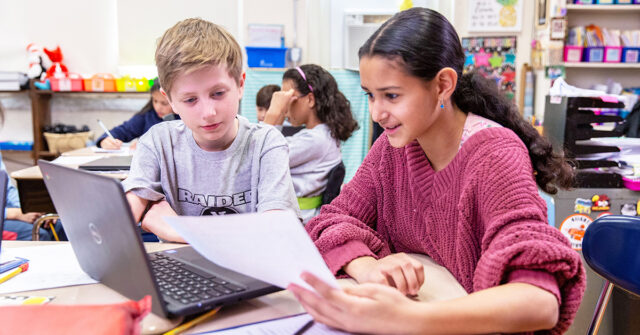Heinemann Publishing’s In the Middle Wednesday blog series, written by Nancie Atwell, continues with Nancie taking about the role of technology in Nancie’s classroom.
Heinemann Publishing’s In the Middle Wednesday blog series, written by Nancie Atwell, continues with Nancie taking about the role of technology in Nancie’s classroom.
Your DVD resource, Writing in the Middle, shows kids writing on computers. What role does technology play at your school, the Center for Teaching and Learning, and in your writing and reading workshop? Do you have any concerns? Do you think classrooms should be equipped with computers?
I do think classrooms in grades four or five and up should have computers, so kids can experience and experiment with word processing, but I have concerns about them in the younger grades. In fact, I think the trend of iPads in the primary classroom is a mistake.
Research conducted in 2012 by Karin James at Indiana University looked at brain scans of young children as they were typing letters, tracing them, or writing them freehand. Only when children handwrote was there activity in the areas of the brain that are activated when adults engage in real reading and writing. Essential circuits light up when the eyes, the hand, and the mind engage together with purpose.
Other studies show that when young children compose by hand, vs typing, they write more, include more ideas in their writing, and learn to read faster. There’s no research basis for teaching normal primary-grade students to type their writing, but there’s mounting evidence against it.
In my seventh-and eighth-grade classroom, over time I accumulated enough computers so today there’s one for every student. Writers in the workshop use them in a variety of ways. Most students draft their poetry by hand; about half handwrite first drafts of narratives; and almost all of them compose essays, reviews, and other pieces of exposition directly on the computer. It’s been interesting to observe how genre can affect the tool they choose. And it’s been important to acknowledge and accommodate the kids with special needs whose voices as writers are made possible by computers. Students who struggle with processing disabilities and small-motor challenges do have ideas, diction, and imagery. Freed from the frustrations of letter formation and conventional spelling, they can express themselves with the best of them.
I require that my students type their final drafts—to achieve instant publication and also to get ready for high school, where handwritten work is no longer accepted by many teachers. I also request that no one rely on the computer when attempting substantive revision.
My students can’t get a sense of the coherence of a text when they view it a-part- at-a-time on a screen. They need to print a double-spaced copy, walk away from the computer with a pen in their hands, and read the draft as if it’s a work of literature: what does this draft need to become publishable, to stand alone, make sense, ring true, sing? Kids handwrite their changes and then return to the computer and type them in. I have yet to teach a seventh or eighth grader who has the control or maturity to revise exclusively on a keyboard and screen.
As readers, many of my students have explored e-books. There's a Kindle in the classroom they can try, and kids receive them as gifts or experiment with their parents'. Most revert to paper books. When I ask them to describe their experience, they say they miss the sense of geography they have with a paper book, where they’re aware, consciously or not, of how many pages an author has to resolve the plot. It’s also harder for them to flip back and forth—to clarify or review with an e-book. But the most frequently cited reasons are social.
Students in reading workshop say it feels isolating not to have a book with a cover. Covers are like badges readers carry when they come to class. Without them, they miss the camaraderie—the questions, advice, opinions, and literary gossip—that develops among groups of book-loving kids. The social benefits of reading are a lot harder to reap if everyone is carrying around a grey screen.



